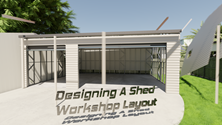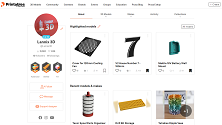Before I started my engineering degree, 3D modelling and Computer Aided Design (CAD) seemed like a daunting skill to learn. Despite that, I was determined to get hold of some software and learn how to apply the mathematical knowledge I was acquiring in class.
It was during the first semester that I joined up with the QUT motorsports club, where I met a young guy whose name I can’t recall right now who was just as enthusiastic about CAD as myself. He directed me to a student version of the industry standard SolidWorks software and I was away. Incidentally, we had a seminar with Ludo Lacroix, engineer from the Red Bull Racing Australia V8 supercar team who confirmed that they use SolidWorks to design parts for their race cars. If it’s good enough for those guys, I’d say it’s good enough for me.
I spent my evenings learning the program by scouring internet forums and watching YouTube clips on how to create what I wanted. At first it was recreating lego parts, which have a great geometric shape that lends itself to learning CAD very nicely.
I then found myself wanting more complex pieces to model so I started formulating a plan to recreate my favourite engine, the GM LSX V8 that is found in cars all over the world such as Holden Commodores, Chevrolet Corvettes and Camaros and the SSC Ultimate supercar that puts out close to 1200 horsepower. I could write a whole blog article on why I like this engine but I’ll stick to the main topic for now!
I knew the project was a bit ambitious for a beginner but the subject matter was something that would keep me enthusiastic about it. The mid-year break was coming up so I decided to take advantage of the free time and lack of uni projects to get stuck into it.
The eye of the tiger set in and I was living and breathing SolidWorks while pretty much living on coffee and vegemite on toast. I spent my time Googling part dimensions and finding reference photos to recreate this thing as faithfully as I could. The ultimate goal was to have a fully working engine before I had to go back to uni.
In the end it was my computer that let me down, well that and what I see as some questionable design decisions. During the implementation of the mechanical mates that instruct the software on how the parts interact with each other, I was getting errors that would cause the program to crash. In the video to the left you can see that the rocker arms (yellow parts) aren’t moving at the rear of the engine. Trying to create a cam mate with them resulted in software crashes. Years later I learned that this was a bug in the software that was fixed in later editions.
The real GM LSX engine. Available as a crate motor to fit in whatever car you have (with varying degrees of modification required!)
I’ve come to learn that most CAD software is full of bugs which I didn’t expect given the huge cost associated with them e.g. the bare bones edition of SolidWorks is around $8000 plus a $1500/year subscription fee.
Now I use the much less expensive but no less buggy Fusion 360 software. It is free to use for hobby level CAD but if you make money from it like me they charge a yearly subscription. The hobby level version has a lot of features turned off but is fine for basic modelling.
If CAD modelling is something you’re interested in learning, I’ve heard good things about the free software Onshape. I’ve never used it myself but one of my favourite YouTubers has recently released a series of video showing the basics of how to use the browser based software.
Thanks for reading and good luck if you’re starting out with CAD. I’ll have another interesting article next week.









